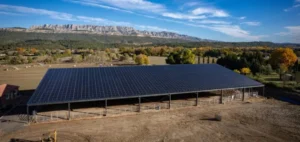The UAE Minister of Industry and Advanced Technology reaffirms the desire for cooperation between the Emirates and India.
According to Dr Sultan bin Ahmed Al Jaber, UAE Minister of Industry and Advanced Technology and CEO of Abu Dhabi National Oil Company (Adnoc), Abu Dhabi is keen to explore partnerships with other Indian companies across its hydrocarbon value chain.
He reinforced the close and deep-rooted economic ties between the UAE and India during a virtual session with Narendra Modi, Prime Minister of India, according to the Wam news agency report.
Speaking at the 5th Annual Roundtable organized by NITI Aayog and India’s Ministry of Petroleum and Natural Gas, during the interactive session between Prime Minister Modi and leading global oil and gas CEOs, Dr. Al Jaber said that India has always been and will always remain one of the UAE’s closest friends and one of its most important trading partners.
Closer ties, especially in the energy sector
He noted that strategic ties between the two countries have strengthened in recent years, particularly in the energy field.
“Today, Indian companies represent some of Abu Dhabi’s key concession and exploration partners.
As we continue to work together, I see significant new opportunities for enhanced partnerships, particularly across our downstream portfolio.
As you know, we have launched an ambitious plan to expand our chemicals, petrochemicals, derivatives and industrial base in Abu Dhabi, and I look forward to exploring partnerships with even more Indian companies across our hydrocarbon value chain.
“India’s remarkable growth as an economic powerhouse has consolidated its place as one of the world’s largest consumers of energy. In fact, it represents Adnoc’s second largest market. It’s a position we hope to build on, in line with India’s hugely expanding growth ambitions. Adnoc is ready to meet India’s growing demand for its entire product portfolio,” said Dr. Al Jaber.
He added that Adnoc is proud to be a major supplier to India’s Strategic Petroleum Reserves, and is keen to expand the commercial scale and scope of this strategic reserves partnership.
Over the past two years, Adnoc has strengthened its strategic energy ties with India, a key growth market for crude, refined and petrochemical products.
In addition to its partnership in the strategic reserves program, Adnoc is also a stakeholder in one of India’s largest refinery and petrochemical projects, to be built on the west coast of India.
Dr. Al Jaber concluded by saying that, in his view, the two countries had only scratched the surface of opportunities that could benefit both India and the UAE in the energy sector.
“I believe that by seizing these opportunities, we can actually accelerate the post-Covid economic recovery. I’m very much looking forward to expanding our relationship in many areas, and I’m absolutely confident that we can remove any obstacles in our own way,” said Dr. Al Jaber.
The interactive session was preceded by an inaugural address by Prime Minister Modi and a keynote address by Dharmendra Pradhan, India’s Minister of Petroleum and Natural Gas.
The aim of the roundtable is to provide a global platform for understanding best practices, discussing reforms and guiding strategies to accelerate investment in the Indian oil and gas value chain.
Other speakers include Abdulaziz bin Salman, Saudi Minister of Energy; Dan Brouillette, U.S. Secretary of Energy; Patrick Pouyanné, Chairman and CEO, Total; Bernard Looney, CEO, BP; Mohammad Sanusi Barkindo, Secretary General, Opec; Lorenzo Simonelli, Chairman and CEO, Baker Hughes; Tengku Muhammad Taufik, President and CEO, Petronas; Daniel Yergin, Vice President, IHS Markit; and Amitabh Kant, CEO, NITI Aayog.
Indian companies have gradually increased their stake in the UAE’s energy sector.
In March 2019, a consortium of two Indian oil companies was awarded exploration rights for an Adnoc onshore: Public block in Abu Dhabi classification.
This followed the February 2018 award of a 10% stake in Abu Dhabi’s Lower Zakum offshore concession to an Indian consortium of three companies, according to the same report.






















